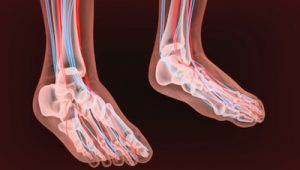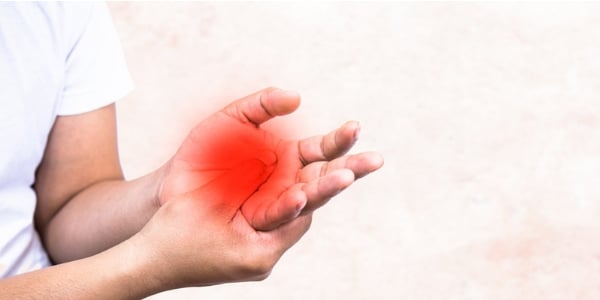A systemic imbalance of specific important hormones could precipitate a medical condition known as peripheral neuropathy. Fortunately, there are appropriate therapy measures available.
Peripheral Neuropathy Overview
Neuropathy occurs when nerves that transmit messages emanating from the brain and spinal cord become damaged. The peripheral manifestation of this malady happens when message-transmitting nerves situated in other bodily regions sustain injury caused by physical trauma or some type of disease process. Peripheral nerves are located throughout the body, and symptom-inducing damage often occurs in places like the skin, extremities and even the internal organs.
Classification and Causes
There are two types of the condition. Mononeuropathies are precipitated by conditions impacting only one peripheral nerve. Polyneuropathies impact several peripheral nerves at once. Peripheral neuropathies are further broken down into three additional categories: acquired, which could be caused by issues like various diseases, hormonal imbalances, injury, malnutrition or poor lifestyle habits; hereditary neuropathies, which are caused by some kind of genetic malady; and idiopathic neuropathies, which typically occur for unknown reasons.
Symptoms
Regardless of the cause, peripheral neuropathies can precipitate a host of untoward and, in certain instances, debilitating and potentially life-threatening physical manifestations. Symptoms like pain, burning, tingling, numbness and mobility problems in the regions surrounding the impacted nerves are common.
More serious manifestations can occur depending on the specific type of nerve involved. The body contains three differentiations of peripheral nerves: sensory, motor and autonomic. Should the autonomic nerves, which control involuntary movements like respiration and heart rate, be impacted, breathing and cardiovascular function could be threatened.
Hormonal Impact on Peripheral Neuropathies

Natural Methods of Alleviating Neuropathies
Fortunately, these conditions can be treated. In some cases, natural methods may provide a certain degree or relief. Specific natural remedies can include the following:
- Vitamin Supplementation – Sometimes, nutritional deficiencies, especially of vitamins like the B complex or D, can precipitate neuropathic development. In such instances, augmenting one’s diet with these nutrients might alleviate associated symptoms.
- Adequate Exercise – Physical activity, particularly involving bodily regions affected by neuropathic issues can be and is often used as a therapeutic protocol. Exercise strengthens the impacted areas, and it stimulates blood flow to these locations, which can stimulate the healing process.
- Alternative Medicinal Procedures – Activities such as acupuncture, yoga, meditation and breathing techniques could provide relief. These practices often help adherents attain a body and mind balance, which might help them better cope with pain and other untoward symptoms.
- Warm Baths – Bathing in warm water is said to increase blood circulation throughout the body. Moreover, the warmth can also relax muscles and make them less susceptible to pain.
- Smoking Cessation – Cigarette smoking can interfere with proper blood circulation. When such circumstances arise, the body is more apt to sustain injury. Therefore, individuals with peripheral neuropathies who smoke often experience more intense pain levels.
Prevention
While prevention might not always be possible, certain actions could go a long way towards attaining this goal. Healthcare professionals suggest adhering to practices that include consuming a balanced diet, promptly addressing any nutritional deficiencies, obtaining appropriate amounts of exercise, limiting or completely ceasing habits such as smoking or excessive alcohol intake and getting regular checkups for serious underlying precipitators like diabetes and other hormonal imbalances.





